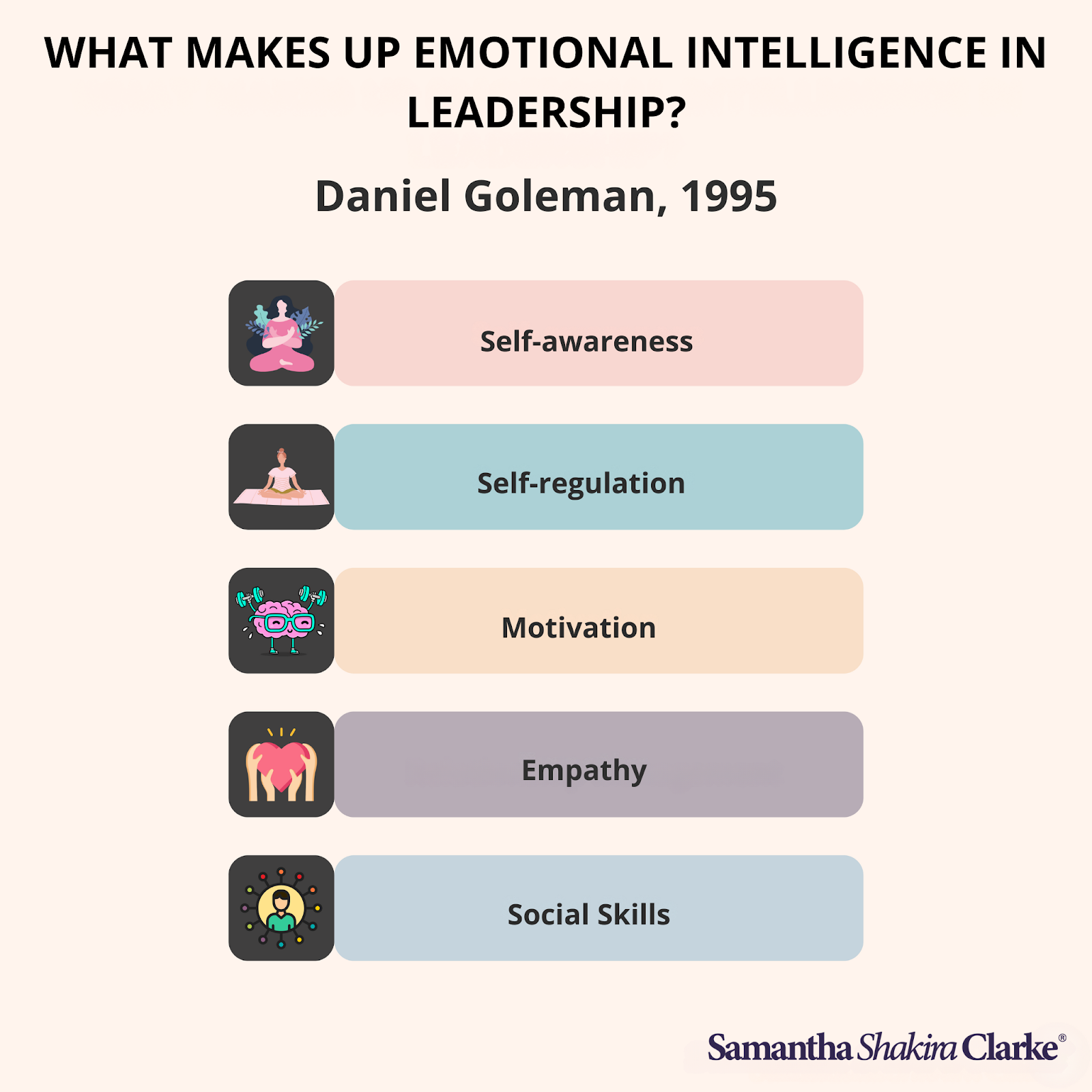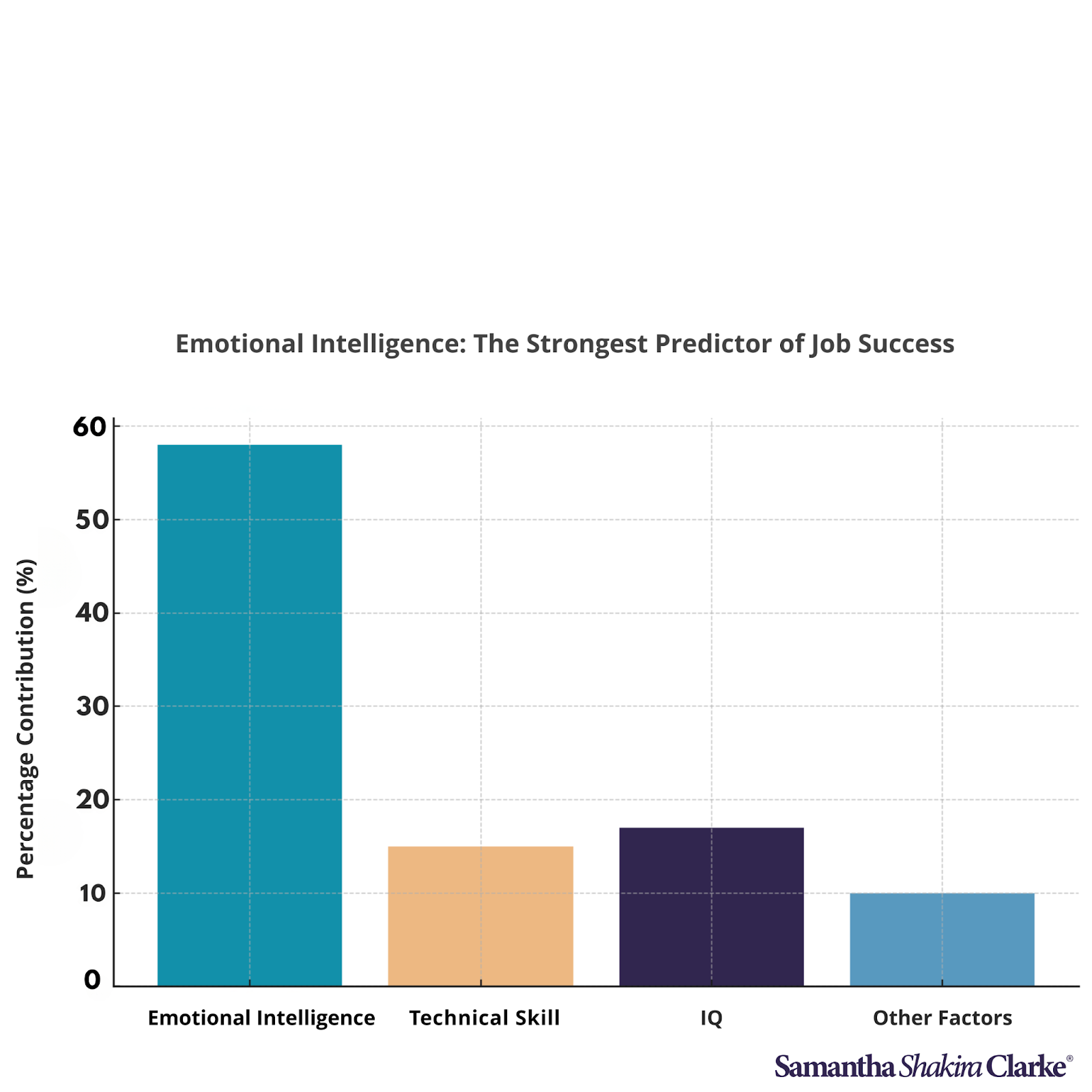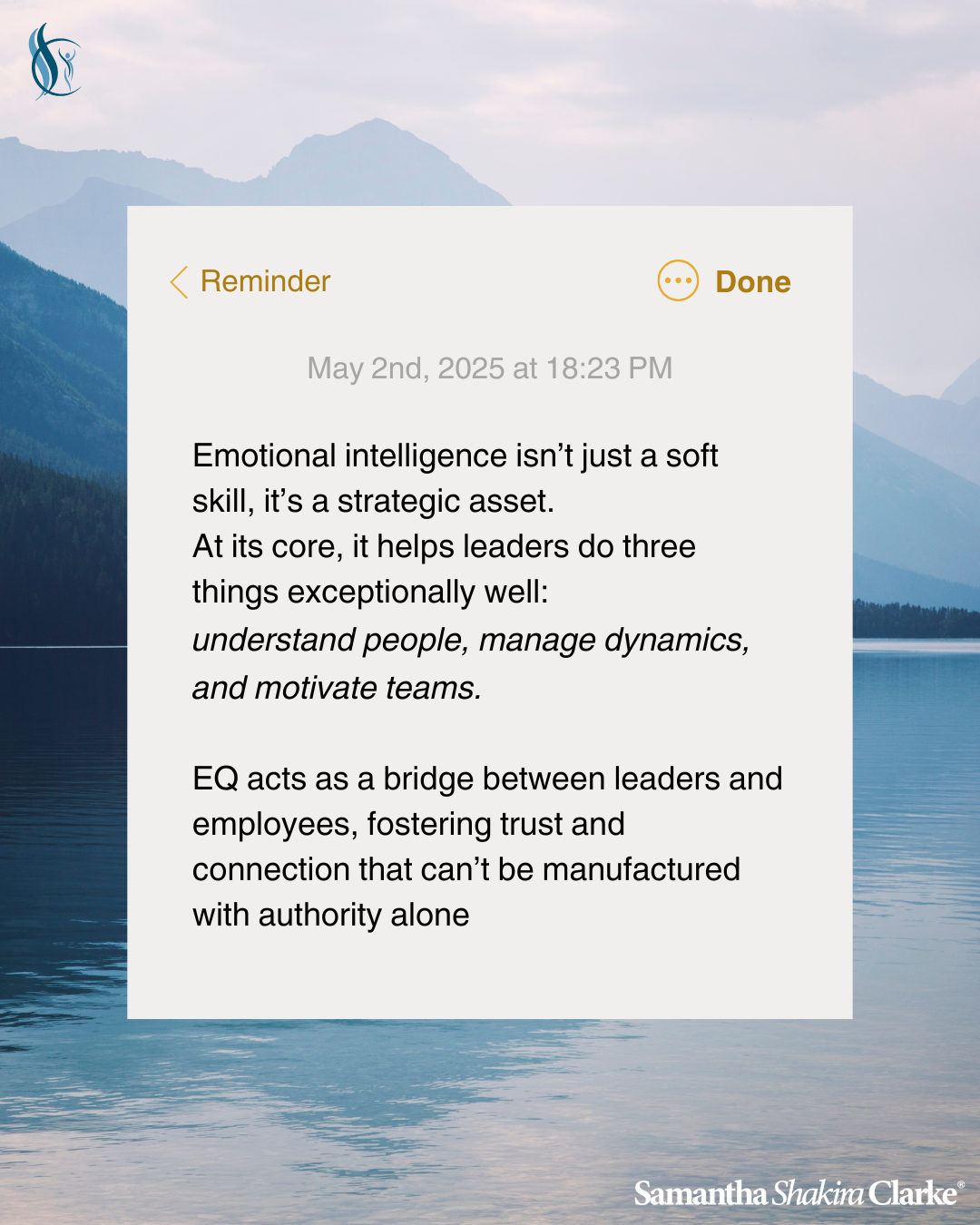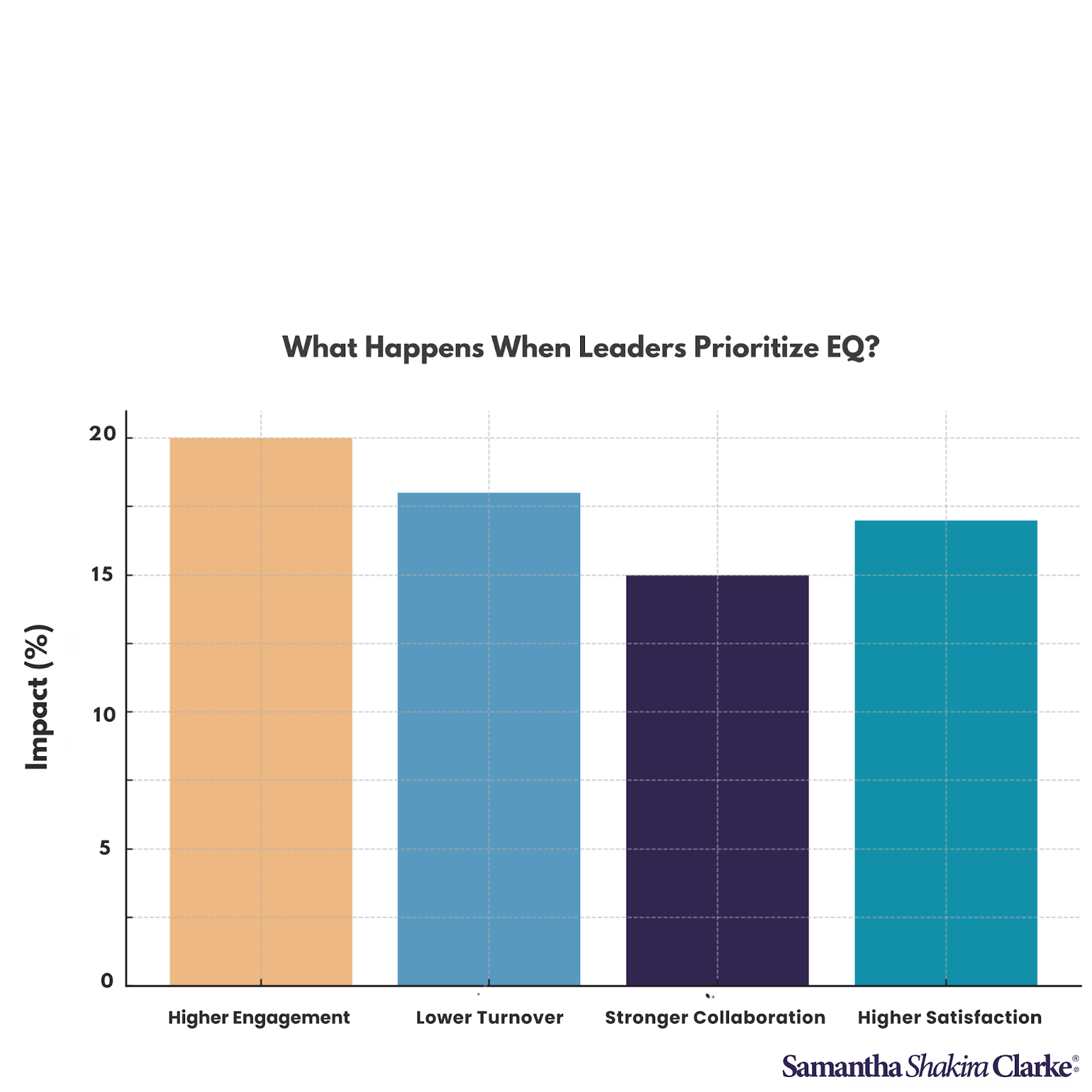 Book Now!
Book Now!At its core, emotional intelligence in leadership is about people—understanding them, connecting with them, and managing ourselves with empathy, self-awareness, social skills, self-regulation, and motivation. In today’s fast-paced, high-pressure work environments, technical skills and strategic thinking are no longer enough to define great leadership. Increasingly, emotional intelligence in leadership has emerged as a make-or-break factor. It’s really the secret ingredient that turns managers into trusted leaders, and good teams into great ones.
But what is emotional intelligence in leadership, exactly? And how can it be developed and strengthened over time? Let’s dive in.
Emotional Intelligence (often called EQ) is the ability to recognize, understand, manage, and influence emotions both your own and those of others. The term was popularized by psychologist Daniel Goleman, who identified five key components of EQ:

Source: (Goleman, 1995).
In leadership, EQ means navigating complex interpersonal dynamics with tact, building trust, and inspiring people to do their best even during challenges.

Source: (TalentSmart, 2023).

A leader with high emotional intelligence can navigate tough conversations with clarity and empathy, making others feel seen even in moments of tension. They’re able to stay grounded under pressure, making thoughtful, balanced decisions when it matters most. They also spot the early warning signs of burnout or low morale, and know how to step in before it spreads. Most importantly, they foster real loyalty creating a culture where collaboration thrives and diverse voices feel genuinely valued.

Source: (Harvard Business Review, 2019).
Leaders with low emotional intelligence often run into hidden obstacles that sabotage their success sometimes without even realizing it. Leaders with low emotional intelligence often face hidden obstacles that can quietly erode their effectiveness. Empathy can also become a handicap and burden to a leader.
If you become overly focused on maintaining good relationships, it can hinder your ability to drive change and make unpopular decisions for the good of the company. Key pitfalls include:
Imagine a manager who dismisses employee concerns with, "Just deal with it." Over time, even talented employees may disengage or leave not because of the work itself, but because of how they feel treated?
The good news? EQ isn't fixed. It’s a set of skills that can be learned, practiced, and strengthened over time. To be more empathetic, and to drive higher engagement in the workplace, you will want to increase your emotional intelligence quotient.
Building emotional intelligence isn’t a sudden transformation in-fact, It’s a steady, intentional climb. It begins with a simple daily practice: pausing long enough to ask yourself, “What am I feeling, and why?” That self-reflection becomes the foundation for greater awareness. From there, growth continues by inviting feedback, sometimes uncomfortable insight from colleagues or mentors that helps uncover the blind spots we can’t spot alone. As you rise, mastering stress becomes essential. Whether it’s deep breathing, mindful movement, or grounding exercises, learning to stay calm under pressure keeps your presence strong. The climb continues as you start to listen not just for information, but for emotion, hearing what’s unspoken, and responding with empathy. And finally, at the higher rungs, comes the power of the pause. Choosing to respond instead of react turns emotional awareness into intentional leadership.
Keep climbing. Because leadership isn’t about having it all figured out, it’s about being willing to learn, feel, and grow along the way.
Pro Tip: Techniques like deep breathing, mindfulness, or even brief walks can prevent emotional hijacking (American Psychological Association, 2020).
Want real, practical ways to boost your emotional intelligence in leadership? Start small because consistency beats intensity.
Here are a few effective practices:
Developing EQ isn’t about perfection. It’s about becoming more aware, more responsive, and more human in leadership moments.
In a world where change is constant and challenges are complex, emotional intelligence in leadership is more critical than ever.
It’s what separates leaders who merely manage tasks from those who inspire transformation. Building EQ isn’t just a “nice to have” It’s a serious competitive edge.
And the best part? Anyone can grow it.
When you invest in emotional intelligence, you're not just becoming a better leader You're creating stronger teams, healthier workplaces, and a lasting impact.
If you're ready to strengthen your emotional intelligence and elevate your leadership, SSC Corporate and Personal Wellness offers personalized coaching and workshops to help you get there.
You’ve got the insight—now give your team the experience. Our ‘Intelligence of the Emotions’ session helps leaders and teams embody Emotional Intelligence where it counts: in the real world.
Because leadership isn’t about being the smartest in the room—it’s about being emotionally intelligent enough to bring the room together.
